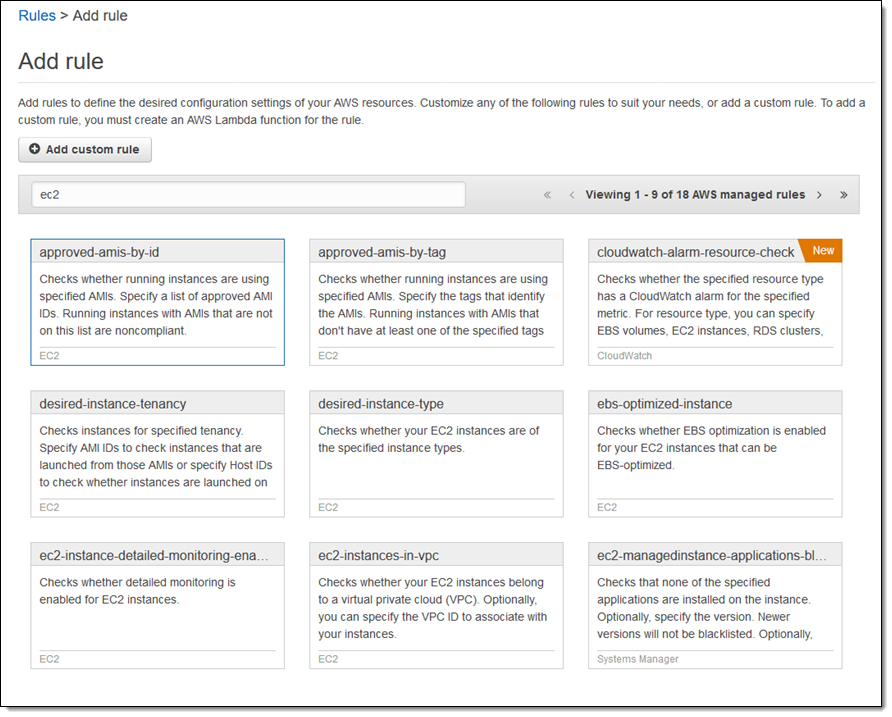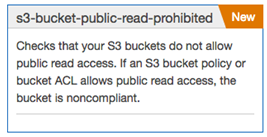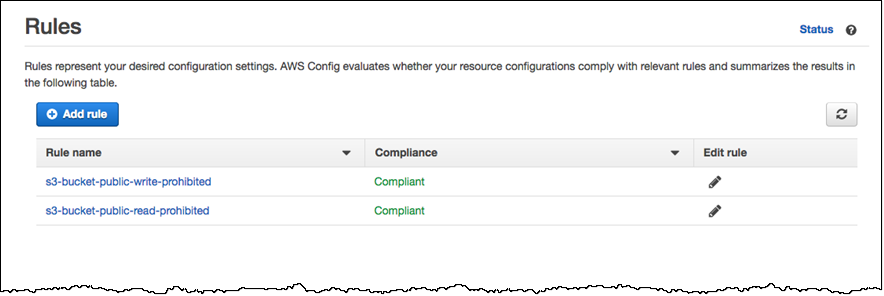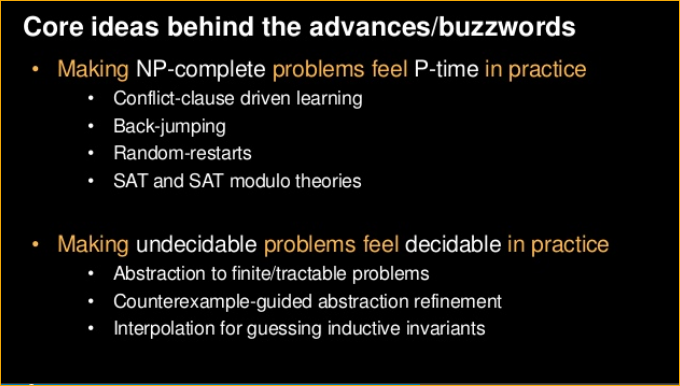AWS News Blog
AWS Config Update – New Managed Rules to Secure S3 Buckets
AWS Config captures the state of your AWS resources and the relationships between them. Among other features, it allows you to select a resource and then view a timeline of configuration changes that affect the resource (read Track AWS Resource Relationships With AWS Config to learn more).
AWS Config rules extends Config with a powerful rule system, with support for a “managed” collection of AWS rules as well as custom rules that you write yourself (my blog post, AWS Config Rules – Dynamic Compliance Checking for Cloud Resources, contains more info). The rules (AWS Lambda functions) represent the ideal (properly configured and compliant) state of your AWS resources. The appropriate functions are invoked when a configuration change is detected and check to ensure compliance.
You already have access to about three dozen managed rules. For example, here are some of the rules that check your EC2 instances and related resources:

Two New Rules
Today we are adding two new managed rules that will help you to secure your S3 buckets. You can enable these rules with a single click. The new rules are:
 s3-bucket-public-write-prohibited – Automatically identifies buckets that allow global write access. There’s rarely a reason to create this configuration intentionally since it allows
s3-bucket-public-write-prohibited – Automatically identifies buckets that allow global write access. There’s rarely a reason to create this configuration intentionally since it allows
unauthorized users to add malicious content to buckets and to delete (by overwriting) existing content. The rule checks all of the buckets in the account.
s3-bucket-public-read-prohibited – Automatically identifies buckets that allow global read access. This will flag content that is publicly available, including web sites and documentation. This rule also checks all buckets in the account.
Like the existing rules, the new rules can be run in response to changes detected by Config. You can see the compliance status of all of your rules at a glance:

Each evaluation runs in a matter of milliseconds; scanning an account with 100 buckets will take less than a minute. Behind the scenes, the rules are evaluated by a reasoning engine that uses some leading-edge constraint solving techniques that can, in many cases, address NP-complete problems in polynomial time (we did not resolve P versus NP; that would be far bigger news). This work is part of a larger effort within AWS, some of which is described in a AWS re:Invent presentation: Automated Formal Reasoning About AWS Systems:
Now Available
The new rules are available now and you can start using them today. Like the other rules, they are priced at $2 per rule per month.
— Jeff;
